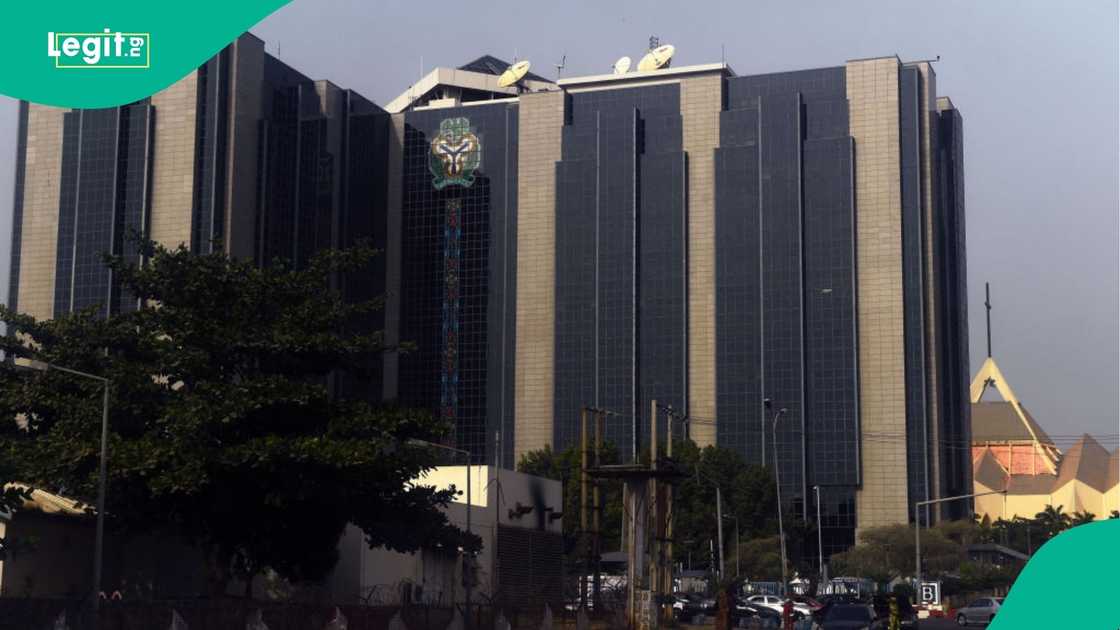Nigeria’s Money Supply Jumps to N117.8 Trillion in Two Years, CBN Data Reveals
- Nigeria’s money supply surged by 75.9% in two years, rising from N66.94 trillion in September 2023 to N117.78 trillion in September 2025
- Analysts attribute the sharp increase in money supply to the government’s growing reliance on bank financing
- Experts warn that while an increased money supply can spur growth through lower interest rates, it may trigger inflation if it outpaces economic productivity
Oluwatobi Odeyinka is a business editor at Legit.ng, covering energy, the money market, tech and macroeconomic trends in Nigeria.
Money supply in Nigeria has surged by 75.9% from N66.944 trillion in September 2023 to N117.783 trillion, according to a new report by the Central Bank of Nigeria.
Analysts warn that Nigeria's economy can take a hit if money in circulation surpasses available goods, Vanguard reported.

Source: Getty Images
The new data contained in the CBN’s Money and Credit report revealed that credit to the government has increased by 9.1% in two years (from N22.137 trillion in September 2023 to N24.158 trillion).
Also, there was a record N24.158 trillion in banks’ credit to the government in September 2025. Analysts said the surge is due to the government’s reliance on bank financing.
A breakdown of CBN data revealed that money supply in the first half of 2025 stood at N64.906 trillion in September 2023, compared to N117.250 trillion in the same period in 2025, marking an 80.6% increase.
In the first quarter of 2025, it went up by 112 % to N115.815 trillion from N54.628 trillion in the same period in 2023.
The report noted that banks’ credit to the government has been on a decline: its decrease by 30.6% (from N31.233 trillion to N21.662 trillion in H1’2025, and further declined by 10% to N24.589 trillion from N27.529 trillion in Q1’23.
A Year-on-Year analysis revealed that banks’ credit to the government declined by 38.8% in September 2025, to N24.2 trillion, from N39.5 trillion in September 2024.

Source: Getty Images
Expert states impacts
Speaking to Vanguard, David Adonri, Analyst and Executive Vice Chairman at High Cap Securities Limited, said the increase in money supply has two implications.
The analyst said it can stimulate economic growth as low interest rates will drive spending and investment. However, if the increase outpaces economic growth, it could lead to inflation.
CBN gives update on economy
Legit.ng reported that the CBN recently gave an update on the state of the economy. The CBN Deputy Governor for Corporate Services, Emem Usoro, argued that the economic reforms by the President Bola Tinubu–led administration have positively impacted the economy. He added that monetary reforms under the current CBN leadership have stabilised the Naira and foreign exchange rates.
Recall that the Nigerian presidency recently released a list of 12 gains consequent of reforms by the Tinubu-led government.
It noted that the reforms have attracted gains in such areas as budget deficit & capital spending, oil & gas, policy environment, inflation & interest rates, poverty and jobs, public financial management, subsidy & product supply, tax-to-GDP & debt service, foreign exchange reserves, exchange rate, and balance of trade.
Source: Legit.ng



